Help a bee (and other pollinators) in 2023!
Published: 24 Feb 2023
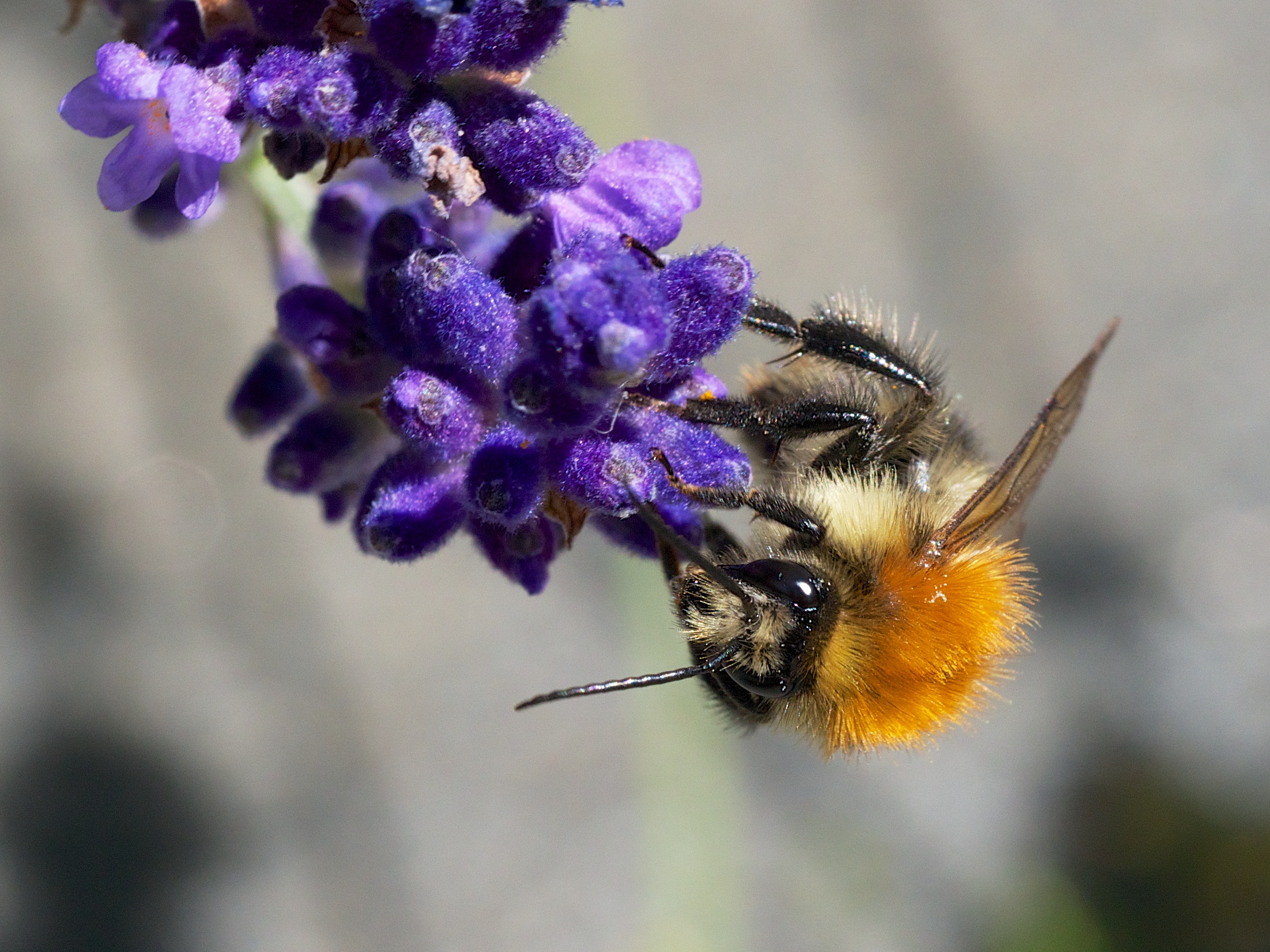
Did you know that we in Wales have (probably) the world’s first and only nationwide community based accreditation scheme to help bees and other pollinators?
It is called the Bee Friendly scheme. It was launched in the autumn of 2016 by Welsh Government and Friends of the Earth Cymru.
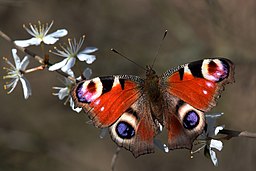
While it is called ‘Bee Friendly', it is actually a scheme designed to help and protect all pollinator species in Wales.
Obviously, during the pandemic, communities weren’t able to get outside and work together to do these types of project, but let’s see if we can get active and help create lots more Bee Friendly places in Wales this year.
How does it work?
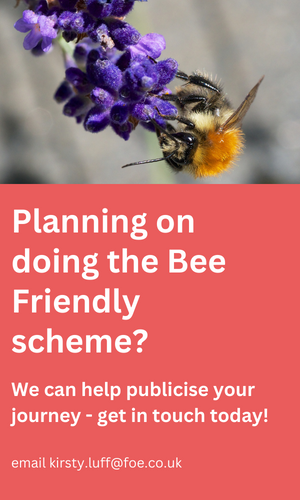 Hopefully the scheme itself is an achievable but important stepping stone to a community or school taking more action to help pollinators. We didn’t think there was any point in getting overly technical or prescriptive or coming up with something that was really, really difficult to do. It’s more important to get active, start helping, learn more about the issues and make some real changes in your local area.
Hopefully the scheme itself is an achievable but important stepping stone to a community or school taking more action to help pollinators. We didn’t think there was any point in getting overly technical or prescriptive or coming up with something that was really, really difficult to do. It’s more important to get active, start helping, learn more about the issues and make some real changes in your local area.
The scheme is split into 4 different areas or themes and these correspond to the issues facing pollinators:
- habitat
- forage
- chemicals
- communications/publicity.
It’s important that pollinators have suitable habitats, suitable forage opportunities, are not impacted negatively by chemical use and that more people know more about the issues and are thus more likely to want to help pollinators themselves.
The information and guidance for the scheme then gives all sorts of ideas and suggestions and case study examples for what a community, school, village etc COULD do to help, but it is then very much up to the school or community to decide what exactly they are going to do based on what they think is suitable and achievable in their own area.
They then keep some sort of record (photos etc) of what they have done across the 4 different themes and submit that to Welsh Government and then hopefully get their accreditation as an official Bee Friendly community or school.
How can you get involved?
Easy peasy!
-
Just work out what sort of project you would like to do. Will it be in your community, in your local school etc?
-
Then have a look at these pages - https://www.biodiversitywales.org.uk/Bee-Friendly
-
Get a few people together and start coming up with a bit of a plan.
-
If you are planning on doing a school-based project then get the kids involved, ask them to come up with plans. If it is more of a community project then invite your neighbours, friends and others in your community to get involved.
-
There are 4 themes for action – Habitat, Forage, Chemicals and Community Involvement, or if you prefer, remember the ‘F’s’ – Food, Five Star Accommodation, Fun and Freedom from pesticides.
-
You’ll need to come up with ideas for action under each of those themes. Don’t worry though, we’ve got lots of ideas on what that could involve but feel free to come up with your own ideas and solutions too!
-
Let us know you’d like to take part.
-
And also let us know if you would like to be put in touch with your local Bee Friendly Champion who can help you with ideas and with the process.
-
Keep a record of what you are doing and have done and then apply for your BF accreditation!
What might some examples of actions be?
There are a load of good ideas from existing BF accredited schemes here. If you are on Facebook you might also like to have a look at these pages. There are also an awful lot of extra resources available from a wide variety of other organisations.
Have some fun!
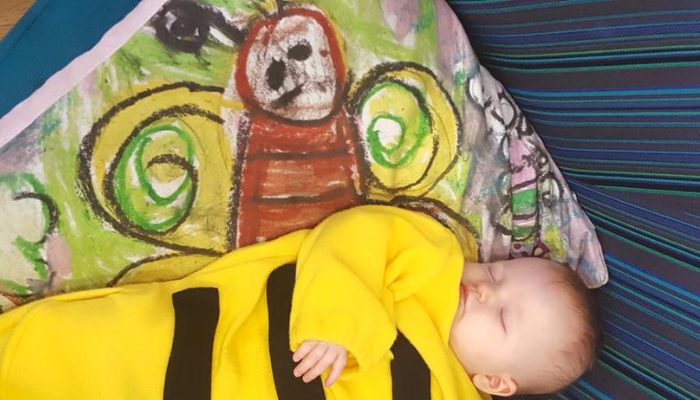
While the decline of pollinator, insect and general wildlife is desperate and serious, how we go about helping reverse these declines doesn’t always have to be ultra-serious. Have some fun coming up with new and engaging ways to get more people involved. Kids especially love bees and butterflies, don’t they? Let them run riot with fun ideas. Maybe a pollinator themed dressing up day in school when they could also do a special assembly, maybe some poetry writing or even composing a Bee-rap?
101 and counting…
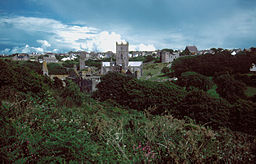
Since it’s inception, 101 Bee Friendly accreditations have been awarded to schemes all across Wales, from St David’s to Cosmeston Lakes Country Park and Nature Reserve and from Llanaelhaearn Community Garden to Cletwr Gardening Group.
Could your community, village, town or school be next? Would you like to become an official Bee Friendly place?
Wildlife Gardening
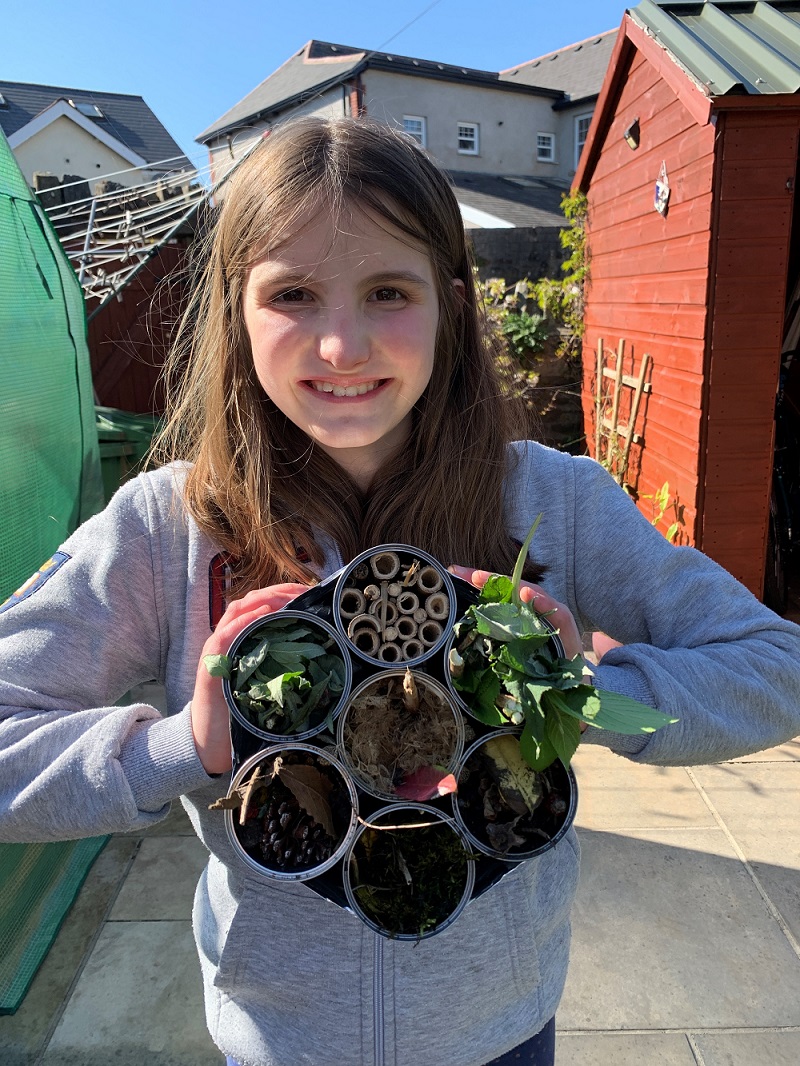
And of course…. if you would also like to do a bit more in your gardens for wildlife this year then do have a look at some great resources here. There is plenty we can all do, even in the smallest garden or window box.
Even small changes in an area can really help our little pollinator friends.
So please ‘Help a Bee in 23’ (and other pollinators too of course!).
Why do we need to bee friendly?
Sadly, our natural world, our planet, our home, is in trouble. Ecosystems and the wonderful array of living things we share this planet with are struggling. The UN tells us that around 1 million plant and animal species are at risk of extinction. We are now in the age of the sixth mass global extinction.
In the UK, we know that the ‘flying insect population has declined by as much as 60% in the last 20 years.’
And pollinating insects have also been hit hard by a variety of factors ranging from habitat destruction to the use of harmful chemicals.
To be honest, there are just so many awful statistics on the state of nature and wildlife that to list more here would become very depressing. However, there is still hope, especially if we crack on with it, so I’m going to jump into some positives and how you can help this year….
How did the scheme come about?
The idea itself was inspired by the existing Fair Trade Town scheme which had devised a scheme whereby a school or community or town could work through a series of stages to eventually achieve a designation as an official Fair Trade Town / school etc.
This scheme had proven popular, raising the profile of the Fair Trade movement.
The Bee Friendly scheme came about with the aim of achieving a similar result for bees and other pollinators.
In 2012, then Welsh Government Environment Minister John Griffiths agreed to consult on the formation of an action plan to protect pollinators in Wales. The following year, Natural Resources Minister Alun Davies launched the new national Action Plan for Pollinators (APP) at the Royal Welsh Show.
Since then, a Pollinator Taskforce made up of a wide variety of groups and individuals from around Wales have been progressing a range of different projects and initiatives to help pollinators. One of these is the Bee Friendly scheme.

